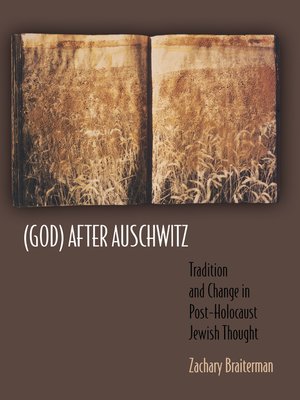(God) After Auschwitz
ebook ∣ Tradition and Change in Post-Holocaust Jewish Thought
By Zachary Braiterman

Sign up to save your library
With an OverDrive account, you can save your favorite libraries for at-a-glance information about availability. Find out more about OverDrive accounts.
Find this title in Libby, the library reading app by OverDrive.



Search for a digital library with this title
Title found at these libraries:
| Loading... |
The impact of technology-enhanced mass death in the twentieth century, argues Zachary Braiterman, has profoundly affected the future shape of religious thought. In his provocative book, the author shows how key Jewish theologians faced the memory of Auschwitz by rejecting traditional theodicy, abandoning any attempt to justify and vindicate the relationship between God and catastrophic suffering. The author terms this rejection "Antitheodicy," the refusal to accept that relationship. It finds voice in the writings of three particular theologians: Richard Rubenstein, Eliezer Berkovits, and Emil Fackenheim.
This book is the first to bring postmodern philosophical and literary approaches into conversation with post-Holocaust Jewish thought. Drawing on the work of Mieke Bal, Harold Bloom, Jacques Derrida, Umberto Eco, Michel Foucault, and others, Braiterman assesses how Jewish intellectuals reinterpret Bible and Midrash to re-create religious thought for the age after Auschwitz.
In this process, he provides a model for reconstructing Jewish life and philosophy in the wake of the Holocaust. His work contributes to the postmodern turn in contemporary Jewish studies and today's creative theology.






